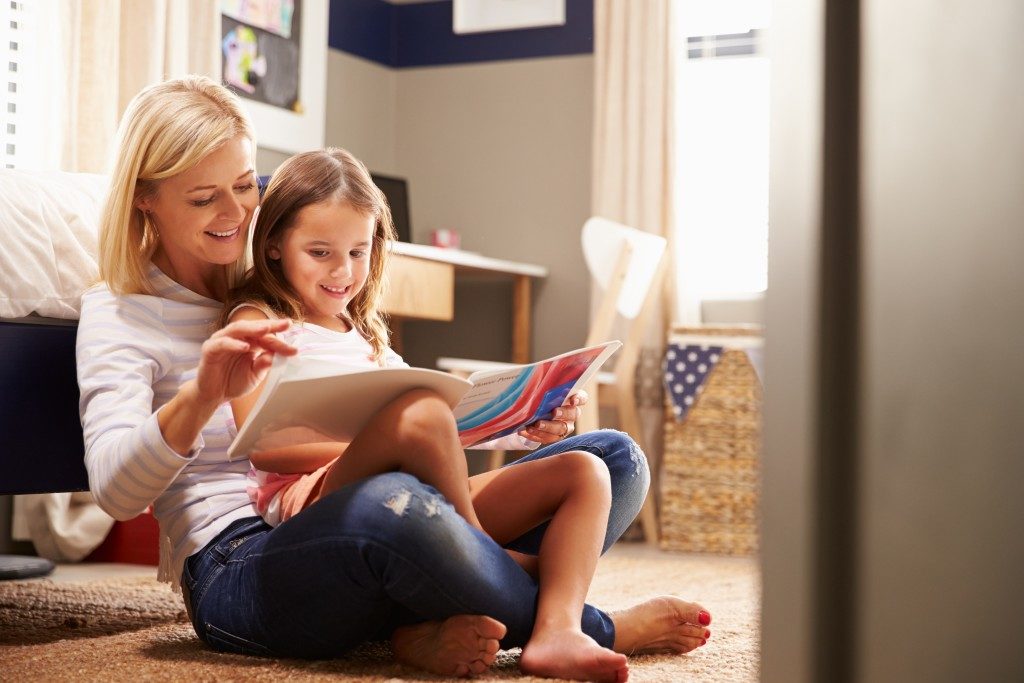Mental health issues such as depression and anxiety have become more prevalent during the COVID-19 pandemic. The global crisis has caused severe feelings of helplessness, especially among medical frontliners and essential workers. But these problems are also being felt by those on the home front, particularly stay-at-home and working parents.
Parenting has taken a new level of stress and difficulty ever since schools temporarily closed and students were forced to take classes at home. For parents, it means juggling a pile of work, household chores, and their kids’ homework.
Having too many people at home for a prolonged period can be chaotic. So if you’re struggling to stay calm and keep things in order, here are some things you can do to ease your burden or, at least, deal with the stress better:
1. Identify weak points at home
Every household has a unique set of problems and challenges. And it is common for family members to have clashing personalities. And awareness of these weak points is essential in maintaining order. Weak points could be anything from having different work schedules, not delegating chores, temper issues or mood problems, financial difficulties, and so on. Once you’ve identified your family’s weak points, make it a group discussion and work together to address these issues.
2. Structure your day
The office or school-to-home transitions have made our daily lives prone to chaos. One way to create boundaries between different tasks is to structure your day. This can be as simple as maintaining a routine, but if things are getting out of hand, consider putting up a calendar and to-do chart so that you’re always on top of things. Visibility is one of the keys to staying organized.
3. Keep your home organized
A cluttered home can lead to a dysfunctional home life. In addition to keeping your house clean, declutter your house room by room and use organization hacks. This could include putting your pantry items in clear, labeled jars, using smart storage tricks for your fridge, folding clothes and storing clutter, and the list goes on.
4. Try online couple’s therapy
The pandemic has had varying effects on relationships. Some couples say their bond became stronger, others worry about their diminishing libido, while others eventually contacted their divorce attorney. If you feel like your relationship with your partner or spouse is taking a turn for the worse, you might want to consider online couple’s counseling first. If it doesn’t work and it’s time to move on, don’t be afraid to do what’s best for you.

5. Do group meditation & yoga
Pandemic or not, mindfulness meditation and yoga are great stress relievers. But it could be more fun if you do it with the whole family. Schedule the best time and find a dedicated space where you and your family can unwind, realign with your inner selves, and work out your body. Try different online classes per week to have some variety, or sign up for guided practice to keep it extra challenging.
6. Use your outdoor space
Sometimes, all it takes to shake off that cabin fever is to step outside and enjoy some fresh air. But since the pandemic is still dragging on, you might want to use your outdoor space instead of going out. You can even take up gardening or improve your landscaping if you have the time. If you have kids who get bored easily or spend too much time on the TV or their phones, keep them involved with light gardening projects, as well.
7. Manage your kids’ behavior positively
Raising kids can be really difficult when you’re juggling work and house chores. Kids can get into all sorts of trouble, from drawing on your walls to engaging in sibling brawls. While it can be tempting to yell or spank your kids, this could actually make things worse. Avoid physical or emotional punishments at all costs. Instead, redirect bad behavior into more productive things such as games, arts and crafts, and chores. Apply positive reinforcements (i.e., rewards and privileges) to keep them interested.
8. Take a breath
Stress can be consuming you if you approach every problem as if you have to solve it immediately. Try taking a step back before you engage in something potentially stressful, be it work, arguments, dirty dishes, and so on. One way to deflate the panic is to only solve problems that represent an immediate danger while taking your time with the rest.
Parenting in a pandemic is a whole new territory, and if you still haven’t figured it out, don’t beat yourself up. Focus on solving small things at a time while taking care of yourself from time to time.


